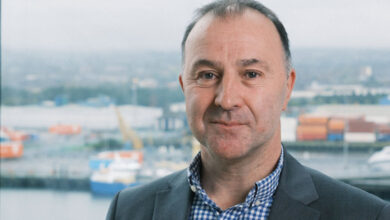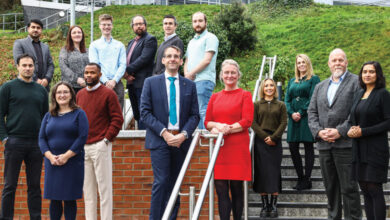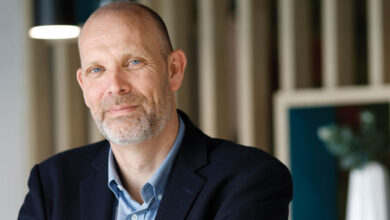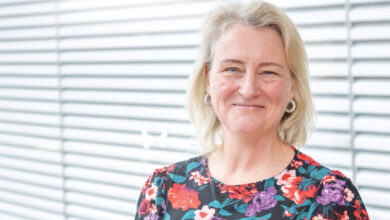Best apps for the cloud
Technology guru David McDonald profiles some useful business apps.
The range of services Google provides is incredible and constantly expanding. Office standards such as word processing, spreadsheets, presentations, calendar and contacts are all present and correct, along with many other features that allow you to do almost everything, without leaving the ‘Googleverse’. Google have also been steadily integrating all their services under the G+ banner, so your G+ page is now home for everything you do on Google.
The Google services are responsive, working well on mobile devices (key factors for cloud services) and offer locally run client applications on many platforms. It’s a great combination and demonstrates how determined Google are to show that you can have all your eggs in one basket. It is also worth noting that Google services complement each other very well e.g. sharing is easy as they already have all your contacts, calendar events can be embedded as live links into documents, and all can be shared via your G+ page.
Google services are free to use, with low-cost paid corporate accounts and desktop apps.
Dropbox makes it very easy to store and share files in the cloud. It even displays and plays media files right in the browser window, making it possible to use files without having to actually download them at all.
The main reason for the popularity of Dropbox is how easy it makes file sharing. The service is cloud-based but with a small client app, which creates a special Dropbox folder, located both on your computer and on the Dropbox servers. Files placed in the Dropbox folder are immediately synced to the website and to anyone you have allowed to share the folder with. Simply dropping the files in is all you have to do. Nested folders may also be created within the main folder as needed and it is possible to replicate your entire folder structure within Dropbox, if you have the space.
Dropbox is free to use up to a 2GB limit, then $9.99 per month for 50GB, $19.99 per month for 100GB, with terabyte storage prices on request. www.dropbox.com
Basecamp is designed for collaborative project management, featuring to-do lists, discussions, events, contacts, documents and file storage. It is a very successful and popular service, in particular due to a deliberately tightly controlled feature set and user interface. It may look minimal, but Basecamp is a powerful service – even more so following a recent complete overhaul of the functions, interface and servers.
Basecamp is a true web app and works in the browser window. Team members may post and assign to-dos, message and comment, view files and create documents with auto versioning. All relevant project information is managed in easily located discussion threads with real-time calendar events and clearly assigned to-do items.
Basecamp costs start at $20 per month for 10 projects, and up to $150 per month for unlimited projects.
Full service accounting applications have traditionally been complicated and expensive, but Kashflow changes all that with their easy to use, yet comprehensive, web-based service. Kashflow is designed specifically to help people who are not accountants to run their business, with estimates, invoices, purchase orders, customer and supplier databases and the exporting of reports (to your accountant) among the many features provided. This is a mature product and sports an impressive range of add-on services and integration with other popular web services, such as Paypal, Dropbox and Mailchimp. There is also an iPhone app available. Kashflow is UK-based and works with Irish and UK VAT and tax regulations.
Kashflow costs £15.99 per month (ex VAT). www.kashflow.co.uk
Web conferencing services are now part of ‘business as usual’ for many people, bringing significant time savings and easier project collaboration. GotoMeeting is one of the most popular of these services and comes from Citrix, already well known for their cross-platform networking products. GotoMeeting provides VOIP calls, video calls, screen-sharing, messaging and recording of meetings, with their own servers doing all the heavy lifting. The client app is updated at the start of every meeting, so the software is always up to date and it works on all major computing platforms, including iPhone, iPad, and Android.
GotoMeeting costs £29 per month for a standard account, which allows unlimited meetings for up to 15 attendees.
www.gotomeeting.ie
Storing and sharing of photos is a critical service for many businesses, and not just photographers. Anyone running a website, or blog, benefits from easy access and publishing of their images as Flickr is one of the most well established services in the business. Users may upload images, create groups, sets, add location data, engage with other users and (most importantly) embed images into websites with a quick and easily generated text snippet. Image management may be done using the site itself, or one of the many apps that connect to Flickr’s APIs. There are many apps running on all computing platforms that make it even easier to connect to Flickr and manage images. Flickr can also be used as your main image library, relieving the concerns of storing large amounts of images on local hard drives.
Flickr costs $24.95 per year for an unlimited ‘pro’ account. www.flickr.com










